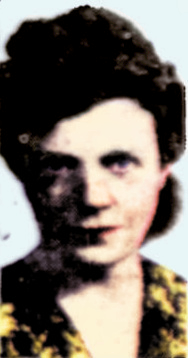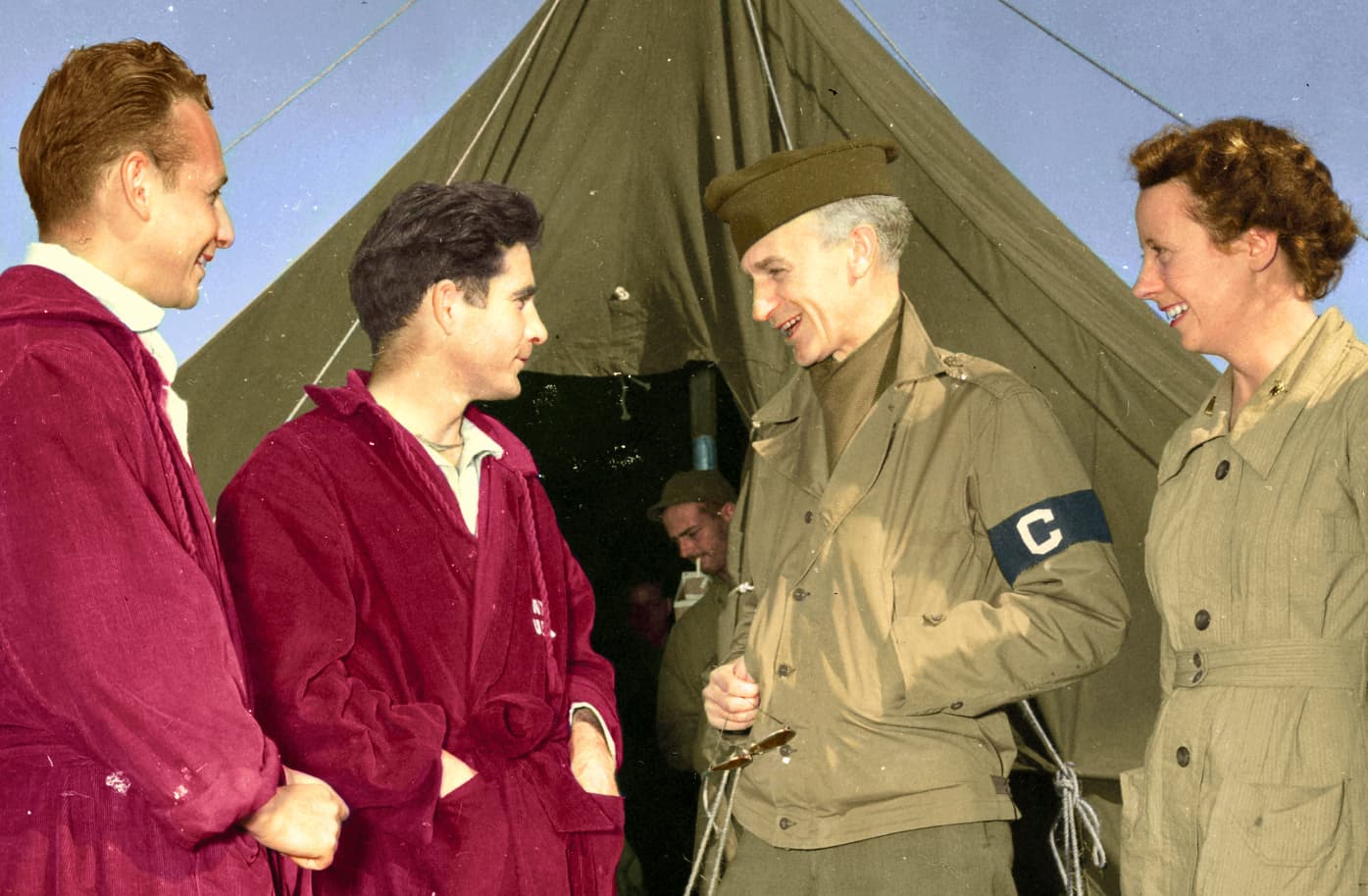
Roving Reporter
By Ernie Pyle
With U.S. forces in Algeria – (by wireless)
The roads in North Africa were surprisingly good. They were macadamized, with banked curves just like ours. Driving around the country, we often remarked that it was hard to realize we were not somewhere in the United States.
The long coastal plain stretching across North Africa, between mountains and sea, was, as I’ve said before, very much like parts of our own Southwest. It was bare of trees, but it was not exactly desert. In fact, it was very fertile and almost wholly under cultivation.
The soil resembled red clay, and was a regular gumbo after rain. The Arabs raised some oats, and I saw some uncommonly long strawstacks, but most of the land was in vineyards and olive groves. Across the slightly rolling land, a person could see for long distances – fifty miles or more. The fields were quite large, and at that season most of them were freshly plowed.
Many American soldiers had their first experience of picking olives right from the trees and eating them – or, I should say, biting them, for they tried it only once. There followed the most violent spitting, spluttering and face-making you ever saw. It seems an olive has to be ripened in brine before it’s edible.
They’re black and beautiful on the trees, but they have a bitter, puckering taste that’s beyond description.
We were all impressed by the neatness and cleanliness of the farming country, even though I can’t say the same for the cities. The fields were immaculate. There was no refuse or squandered growth or stuff lying around, as on so many American farms.
Few Arab steeds
The Arabs did all their farming with horses, which appeared to be in good shape. But we seldom saw one of those beautiful Arab steeds that we read about in ''sheik” books. Out in the country there were many herds of goats and sheep, usually tended by small children. We saw cute little shepherdesses, not more than eight years old, in hoods and nightgown-like dresses, who smiled and made the V-for-Victory sign as we passed.
The Arabs seemed a strange people, hard to know. They were poor, and they looked as tight-lipped and unfriendly as the Indians in some of the South American countries, yet they were friendly and happy when we got close to them. As we drove through the country, Arab farmers by the hundreds waved at us along the road, and the children invariably shouted their few American words – "goodbye” or "okay” – as we passed, and either saluted like soldiers or gave the V sign with their fingers.
In half a day’s driving here I got more V signs than I saw the whole time I was in England.
I still haven’t got the religion question straight. Some Arab women wore white sheets and hoods that covered the face, except for one eye peering out. The soldiers called them "One-eyed Flossies.” But they were in the minority. Most of the women showed their faces. As far as I could figure out, the ones who covered their faces were the severely religious, just as at home only a few of the Jewish people are what they call orthodox. The rest were good people, but they didn’t observe the ancient customs and restrictions.
Arab prays
Just at sunset one day we passed a team and a wagon carrying a whole Arab family. The man was down on his knees and elbows at the edge of the pavement, facing east toward Mecca, but the women and children were sitting in the wagon. One of our party remarked:
I guess he’s making a deal for the whole family.
That was the only Arab I saw praying.
No American soldier in this part of Africa has seen a camel. Apparently, these beasts aren’t needed in this fertile region. The Sahara proper doesn’t begin until nearly 300 miles south, and I suppose you have to go there to see camels in action.
There are very few native-owned passenger cars on the roads, but quite a lot of heavy trucks. That’s because of gasoline shortage. But trucks burn alcohol, and even that is short, for the Germans turned most of the grape crop alcohol into their own motors.
As far as I know, there is no such thing as interior heating of homes here in winter. This region used to get coal from France, of course, but that was cut off when France fell. We brought our own coal with us – whole shiploads for running power plants and so on.
Once in a while there were clusters of cactus, and frequently fields were fenced with hedgelike rows of what is known in Mexico as maguey, the plant from which pulque and tequila are made. Apparently, the Arabs don’t keep themselves as well-oiled on their native drinks as do the people in some countries. I saw some drunken Arabs, but they were very rare. The good ones never drink anything alcoholic. It’s against their religion.


